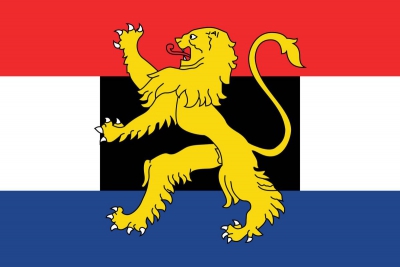The European Economic Community (EEC) was a regional organization that aimed to bring about economic integration among its member states. It was created by the Treaty of Rome of 1957. Upon the formation of the European Union in 1993, the EEC was incorporated into the EU and renamed the European Community (EC). In 2009, the EC formally ceased to exist and its institutions were directly absorbed by the EU. This made the Union the formal successor institution of the Community.
The Community's initial aim was to bring about economic integration, including a common market and customs union, among its six founding members: Belgium, France, Italy, Luxembourg, the Netherlands and West Germany. It gained a common set of institutions along with the European Coal and Steel Community (ECSC) and the European Atomic Energy Community (EURATOM) as one of the European Communities under the 1965 Merger Treaty (Treaty of Brussels). In 1993 a complete single market was achieved, known as the internal market, which allowed for the free movement of goods, capital, services, and people within the EEC. In 1994 the internal market was formalised by the EEA agreement. This agreement also extended the internal market to include most of the member states of the European Free Trade Association, forming the European Economic Area, which encompasses 15 countries.
Upon the entry into force of the Maastricht Treaty in 1993, the EEC was renamed the European Community to reflect that it covered a wider range than economic policy. This was also when the three European Communities, including the EC, were collectively made to constitute the first of the three pillars of the European Union, which the treaty also founded. The EC existed in this form until it was abolished by the 2009 Treaty of Lisbon, which incorporated the EC's institutions into the EU's wider framework and provided that the EU would "replace and succeed the European Community".
The EEC was also known as the European Common Market in the English-speaking countries and sometimes referred to as the European Community even before it was officially renamed as such in 1993.
The Benelux Union (Dutch: Benelux Unie; French: Union Benelux; Luxembourgish: Benelux-Unioun), also known as simply Benelux, is a politico-economic union and formal international intergovernmental cooperation of three neighboring states in western Europe: Belgium, the Netherlands, and Luxembourg. The name is a portmanteau formed from joining the first few letters of each country's name—Belgium, Netherlands, Luxembourg—and was first used to name the customs agreement that initiated the union (signed in 1944). It is now used more generally to refer to the geographic, economic, and cultural grouping of the three countries.
The Benelux is an economically dynamic and densely populated region, with 5.6% of the European population (29.2 million residents) and 7.9% of the joint EU GDP (€36,000/resident) on no more than 1.7% of the whole surface of the EU.
The main institutions of the Union are the Committee of Ministers, the Council of the Union, the General Secretariat, the Interparliamentary Consultative Council and the Benelux Court of Justice while the Benelux Office for Intellectual Property cover the same land but are not part of the Benelux Union.
The Benelux General Secretariat is located in Brussels. It is the central platform of the Benelux Union cooperation. It handles the secretariat of the Committee of Ministers, the Council of Benelux Union and the sundry committees and working parties. The General Secretariat provides day-to-day support for the Benelux cooperation on the substantive, procedural, diplomatic and logistical levels. The Secretary-General is Alain de Muyser from Luxembourg and there are two deputies: Deputy Secretary-General Frank Weekers from the Netherlands and Deputy Secretary-General Rudolf Huygelen from Belgium.
The presidency of the Benelux is held in turn by the three countries for a period of one year. Luxembourg holds the presidency for 2022.

1958Feb, 3
Founding of the Benelux Economic Union, creating a testing ground for a later European Economic Community.
Choose Another Date
Events on 1958
- 13May
Richard Nixon
During a visit to Caracas, Venezuela, Vice President Richard Nixon's car is attacked by anti-American demonstrators. - 30May
Arlington National Cemetery
Memorial Day: The remains of two unidentified American servicemen, killed in action during World War II and the Korean War respectively, are buried at the Tomb of the Unknown Soldier in Arlington National Cemetery. - 16Jun
Hungarian Revolution of 1956
Imre Nagy, Pál Maléter and other leaders of the 1956 Hungarian Uprising are executed. - 18Aug
Lolita
Vladimir Nabokov's controversial novel Lolita is published in the United States. - 28Nov
French colonial empire
Chad, the Republic of the Congo, and Gabon become autonomous republics within the French Community.

 English
English  español
español  français
français  português
português  русский
русский  العربية
العربية  简体中文
简体中文 